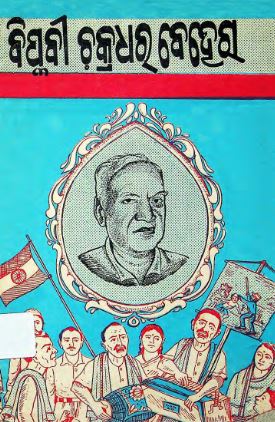The Odia literary landscape is enriched by the significant contributions of authors who delve into the lives of inspiring figures. One such illuminating work is “Biplabi Chakradhar Behera,” authored by Arun Kumar Panda and published in 1996. This biography encapsulates the life of Chakradhar Behera, an icon of resistance and a fervent advocate for social change, who played an instrumental role in the freedom movement of India.
Chakradhar Behera, often hailed as a ‘Biplabi’ or revolutionary, was not only characterized by his ardor for independence but also by his undeterred spirit in challenging oppression. Born into a humble family, he was shaped by the socio-political environment of his time. The book traces his early life, showcasing how his childhood experiences ignited a flame of activism within him. Arun Kumar Panda meticulously details Behera’s formative years, emphasizing the values of courage and integrity instilled in him from a young age.
One of the standout aspects of this biography is its profound exploration of Behera’s contributions to the freedom struggle. He was involved in various movements aimed at dismantling colonial rule and empowering the local populace. The author shed light on Behera’s role in organizing protests, rallies, and underground meetings that rallied the community against British imperialism. His actions were not just limited to physical resistance; they also encompassed education and awareness campaigns that encouraged his fellow countrymen to rise against injustice.
Arun Kumar Panda does not merely recount facts; rather, he brings to life the emotions and fervor that characterized Behera’s journey. The narrative highlights his resilience in the face of adversity, including instances of imprisonment and violence that he endured for his beliefs. Each chapter serves to elevate Behera’s spirit as a fighter, resilient in his convictions and dedicated to the cause of freedom.
The book also touches upon the personal dimensions of Behera’s life, particularly his beloved children and their impact on his journey. Behera’s relationship with his family provides a tender contrast to his otherwise turbulent life as a revolutionary. His daughter, Kanika, often described in the biography, symbolizes the hope and future that Behera yearned for—a future free from the shackles of colonial oppression. The author elegantly intertwines Behera’s personal and public life, showcasing how his familial bonds motivated him even further in his pursuits.
at the essence of Chakradhar Behera’s revolutionary spirit resonates with both scholars and casual readers alike. The inclusion of anecdotes, letters, and photographs enriches the narrative, making it not just a biography but a piece of history itself.
In conclusion, “Biplabi Chakradhar Behera” by Arun Kumar Panda is more than just a recounting of a revolutionary’s life; it is a tribute to the ideals of courage, sacrifice, and love for one’s country. This book is essential for those who wish to understand the nuances of Odisha’s contribution to the Indian freedom movement and the multifaceted nature of its heroes. By chronicling the life of Chakradhar Behera, Panda ensures that his legacy continues to inspire future generations to uphold the values of bravery and justice
Books Info
| Books name | Biplabi Chakradhar Behera |
| Author | Ratnakar Chaini |
| No Of pages | 110 |
| Publisher | Sunapila Prakashana |
| Publication | 1996 |
| Printed At | Digambara Printing Press |
| Distributor | NA |

